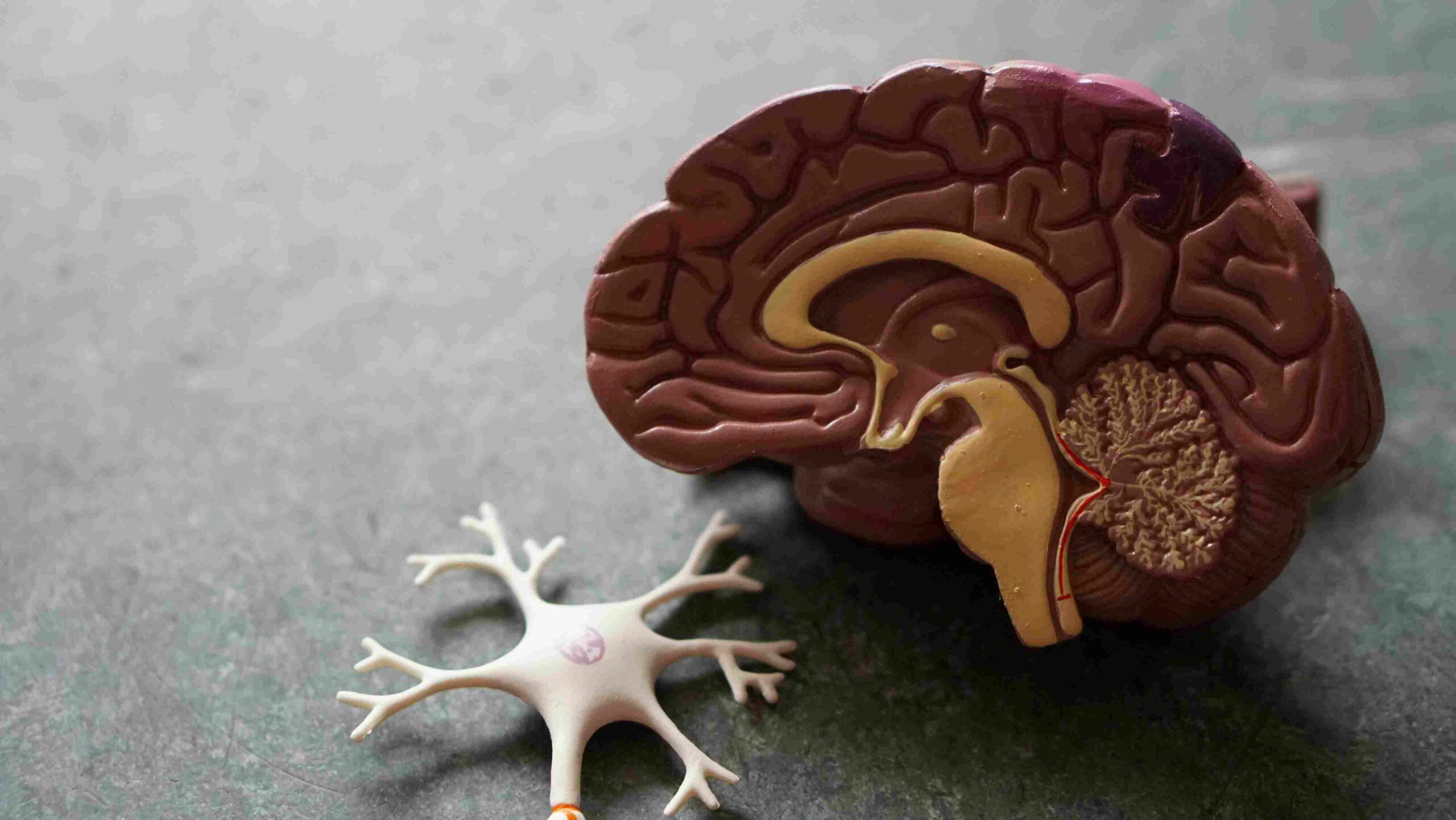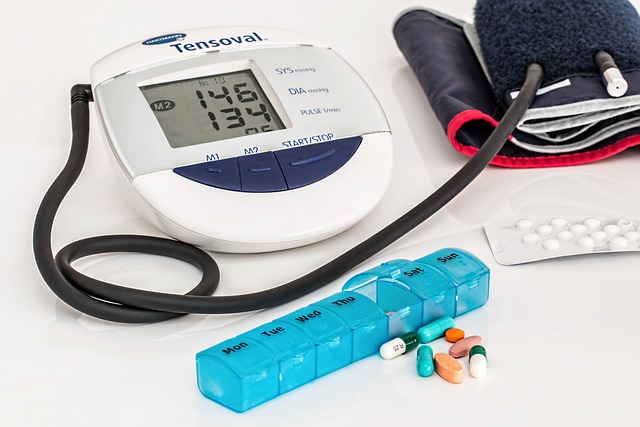
In today’s world, stress has become an inevitable part of life for many people. Workload, financial difficulties, social relationships, and even daily minor challenges can accumulate over time, leading to serious health problems. Understanding the effects of stress on the body is crucial for maintaining both physical and mental health. In this article, we will explore the various effects of stress on the body and how we can minimize these effects.
Physical Effects of Stress on the Body
Stress is a complex biological response that affects many systems in the body. This response can help us survive in the short term but can have devastating effects on our bodies over the long term.
1. Effects on the immune system
Stress can weaken the immune system. When stress hormones like cortisol remain elevated for long periods, they can impair the function of immune cells, reducing the body’s resistance to infections. This can lead to frequent illnesses, prolonged recovery times, and even susceptibility to more serious diseases.
2. Effects on the digestive system
The effects of stress on the digestive system are extensive. Acute stress can increase stomach acid production, leading to issues such as heartburn and gastritis. Chronic stress, on the other hand, can affect bowel movements, leading to digestive disorders such as irritable bowel syndrome (IBS). Additionally, stress is known to negatively impact gut microbiota, contributing to digestive problems.
3. Effects on the cardiovascular system
Chronic stress can have adverse effects on heart and vascular health. Continuous high stress increases blood pressure, elevates heart rate, and raises the risk of heart diseases. Long-term stress can also lead to the hardening of the arteries (atherosclerosis), which increases the risk of heart attacks and strokes.
4. Muscle and joint pain
Stress can cause muscle tension and lead to muscle pain. This is commonly felt in the neck, shoulders, and back. Constant muscle tension over time can lead to chronic pain syndromes and contribute to joint pain.
5. Effects on the respiratory system
Stress can affect the rate and depth of breathing. In acute stress situations, there is a tendency to breathe rapidly and shallowly, which can lead to hyperventilation. Chronic stress can exacerbate asthma and other respiratory issues.
6. Skin problems
Stress can also negatively affect skin health. It reduces blood flow to the skin, causing it to dry out and become more sensitive. Stress can also trigger flare-ups of acne, eczema, and psoriasis.
Mental and Emotional Effects of Stress
It is well known that stress affects not only physical health but also mental and emotional well-being. The effects of stress in these areas can significantly reduce the overall quality of life.
1. Anxiety and depression
Stress can contribute to the development of mental health issues such as anxiety and depression. Stress hormones can disrupt the balance of neurotransmitters in the brain, leading to negative effects on mood. Chronic stress can create a constant state of anxiety and lead to the emergence of depressive symptoms.
2. Concentration and memory problems
Stress also has negative effects on concentration and memory. People under stress may find it difficult to focus and recall information. Long-term stress can impair brain function, weakening the ability to learn.
3. Emotional instability
Stress deeply affects individuals’ emotional states. People who are constantly under stress may experience emotions like anger, sadness, and anxiety more intensely. This emotional instability can negatively impact social relationships and damage a person’s self-confidence.
4. Sleep disorders
Stress can disrupt sleep patterns and lead to insomnia. Lack of sleep prevents the body and brain from getting adequate rest, which can exacerbate the effects of stress. Chronic stress reduces sleep quality, negatively impacting daily performance.
5. Loss of motivation
Constant stress can negatively affect individuals’ motivation and energy levels. People under stress may struggle to carry out daily tasks and generally derive less enjoyment from life. This can lead to serious issues such as burnout

Stress management strategies
Various strategies can be developed to minimize the effects of stress on the body and mind. Below are some effective methods to manage stress.
1. Regular exercise
Exercise is one of the most effective ways to cope with stress. Regular physical activity helps the body release endorphins, known as the happiness hormones, which reduce stress levels. Exercise also alleviates muscle tension, providing physical relaxation.
2. Balanced diet
Nutrition plays a crucial role in stress management. Providing the body with the vitamins and minerals it needs enhances its ability to cope with stress. Nutrients like magnesium, B vitamins, and omega-3 fatty acids support the nervous system and help regulate mood.
3. Adequate sleep
Sleep is vital for the renewal of the body and mind. Adequate and quality sleep alleviates the negative effects of stress and improves overall health. Establishing a regular sleep routine can enhance sleep quality and reduce stress.
4. Breathing exercises and meditation
Breathing exercises and meditation are effective methods for alleviating the mental and physical effects of stress. Deep breathing relaxes the body and calms the nervous system. Meditation enhances mental clarity and reduces stress levels.
5. Social support
Strong social connections are a significant source of support in coping with stress. Relationships with family, friends, and communities can alleviate the negative effects of stress and provide emotional support.
Nutritional recommendations for preventing stress: A comprehensive guide
Stress has become an inevitable part of modern life and can have negative long-term effects on health. However, by adopting proper eating habits, it is possible to reduce the impact of stress and lead a more balanced life. Consuming foods that enhance the body’s ability to cope with stress can improve not only mental health but also overall physical health. Here are some effective nutritional recommendations for preventing stress:
1. Consume magnesium-rich foods
Magnesium is an essential mineral that helps the body cope with stress. It supports the nervous system, relaxes muscles, and regulates cortisol levels, thereby reducing the negative effects of stress. A magnesium deficiency can lead to issues such as anxiety and depression, so it is important to ensure adequate intake.
Foods: Spinach, almonds, cashews, pumpkin seeds, avocado, whole grains, bananas.
2. Increase omega-3 fatty acids intake
Omega-3 fatty acids are powerful nutrients that support brain function and reduce inflammation. These fatty acids can alleviate depressive symptoms associated with stress and have a positive impact on overall mood. Regular consumption of omega-3s plays a significant role in stress management.
Foods: Walnuts, flaxseeds, chia seeds, purslane, seaweed.
3. Consume foods rich in B vitamins
B vitamins, particularly B6, B9 (folic acid), and B12, are critical for energy production and brain health. These vitamins help regulate stress hormones and support the healthy functioning of the nervous system. A deficiency in B vitamins can cause symptoms such as fatigue, irritability, and anxiety.
Foods: Whole grains ( brown rice), beans, lentils, quinoa, chickpeas, leafy greens.
4. Antioxidant-rich foods
Antioxidants fight free radicals in the body, protecting cells and reducing the oxidative damage caused by stress. This strengthens the immune system and minimizes the negative effects stress can have on the body. Antioxidants like vitamins C and E are particularly important during stressful periods.Foods: Citrus fruits (oranges, grapefruit), strawberries, blueberries, blackberries, spinach, broccoli, nuts, sunflower seeds.
5. Choose complex carbohydrates
Complex carbohydrates increase serotonin production in the body, which improves mood and promotes relaxation. Refined sugars and simple carbohydrates can cause spikes in blood sugar levels, exacerbating stress. Therefore, it is better to opt for complex carbohydrates.
Foods: Brown rice, oats, quinoa, sweet potatoes, lentils.
6. Don’t neglect protein intake
Protein is necessary for the production of neurotransmitters in the body. Neurotransmitters are chemicals in the brain that enhance the ability to cope with stress. Protein also helps repair muscles and balances overall energy levels.
Foods: Legumes (beans, lentils, chickpeas), tofu, tempeh, edamame, nut butter.
7. Drink plenty of water
Adequate water intake is essential for the body to function optimally. Dehydration can increase stress and have various negative effects on the body. Drinking water during stressful times can improve mental clarity and promote physical relaxation.
8. Consume probiotic foods
Gut health is directly linked to brain health. The balance of gut microbiota plays a crucial role in managing stress. Probiotics regulate the gut flora, reduce the negative effects of stress, and improve overall mood.Foods: Sauerkraut, kimchi, kombucha, miso, tempeh.
9. Limit caffeine and sugar intake
While caffeine and sugar can provide a short-term boost in energy and alertness, they can increase stress levels in the long term. Caffeine can stimulate the nervous system, leading to anxiety, while sugar can cause spikes in blood sugar levels, negatively impacting mood. Therefore, limiting caffeine and sugar intake is important for stress management.
10. Adopt regular and balanced eating habits
Eating meals at regular intervals throughout the day helps stabilize blood sugar levels, reducing mood swings and stress levels. Skipping meals can cause an increase in stress hormones. Regular and balanced eating enhances the body’s ability to cope with stress.
Managing stress during special periods: Pregnancy, menopause, and adolescence
Stress can affect individuals at any stage of life, but certain life phases may increase vulnerability to emotional strain. Periods like pregnancy, menopause, and adolescence involve significant hormonal changes and physical transformations, often leading to heightened stress levels. Proper nutrition during these special periods plays a crucial role in managing stress and supporting overall health. Here’s a detailed look at how to manage stress during these unique phases and the foods that can help:
1. Stress management and nutrition during pregnancy
Pregnancy is a time of significant physical and emotional changes for a woman. Hormonal fluctuations, bodily changes, and uncertainties about the future can increase stress levels. Establishing a healthy eating plan during pregnancy supports both the physical and mental well-being of the expectant mother.
a.) Omega-3 fatty acids
Omega-3 fatty acids, particularly DHA (docosahexaenoic acid), are essential for both maternal and fetal health during pregnancy. These fatty acids support brain function, regulate mood, and help mitigate the effects of stress. Additionally, they are crucial for the development of the baby’s brain and eyes.
Foods: Walnuts, chia seeds, flaxseeds, seaweed.
b) Folic acid and B vitamins
B vitamins, especially folic acid, are vital for cell renewal and DNA synthesis. Adequate folic acid intake during pregnancy helps prevent neural tube defects in the baby and can also help balance stress levels in the mother. Vitamins B6 and B12 are also important in coping with stress.
Foods: Leafy green vegetables, legumes, whole grains, oranges.
c) Magnesium
Magnesium is known for its muscle-relaxing properties, which can alleviate muscle cramps and the physical symptoms of stress often experienced during pregnancy. Magnesium deficiency can also increase the risk of anxiety and depression.
Foods: Spinach, almonds, avocado, pumpkin seeds.
d) Probiotics
Gut health is critical for overall health and stress management. Probiotics balance the gut microbiota, regulate the digestive system, and indirectly improve mood.
Foods: Sauerkraut, kimchi, tempeh, kombucha.
e) Hydration
Dehydration is common during pregnancy and can increase physical fatigue and trigger stress. Adequate water intake helps the body function optimally and reduces the impact of stress.
2. Stress management and nutrition during menopause
Menopause is a significant life transition for women, often accompanied by hormonal changes that can lead to stress, anxiety, and depression. Adjusting dietary habits during menopause can greatly aid in managing stress and maintaining overall health.
a) Calcium and vitamin D
As estrogen levels decrease during menopause, bone density can also decrease. Calcium and vitamin D are crucial for maintaining bone health and play a significant role in managing stress. Vitamin D deficiency can lead to mood swings and depressive symptoms.
Foods: Broccoli, almonds, homemade plant-based milks, mushrooms (sunlight exposure is also necessary for vitamin D).
b) Phytoestrogens
Consuming foods rich in phytoestrogens can help alleviate menopausal symptoms. Phytoestrogens mimic estrogen in the body and can reduce symptoms like hot flashes, while also helping to manage stress.Foods: Flaxseeds, chickpeas, beans, tofu.
c) Omega-3 fatty acids
Omega-3 fatty acids are essential for mental health during menopause. They reduce inflammation, protect heart health, and lower the risk of depression, thereby improving overall mood.
Foods: Walnuts, chia seeds, flaxseeds, seaweed.
d) Fiber-rich foods
During menopause, metabolism may slow down, leading to digestive issues. Fiber-rich foods support digestion, enhance overall health, and help mitigate the effects of stress on the body.
Foods: Oats, whole grains, apples, pears.
e) Hydration
Adequate water intake during this period is vital for maintaining hormonal balance and overall health. Water helps alleviate hot flashes and keeps the body cool, which in turn reduces stress levels.
3. Stress management and nutrition during adolescence
Adolescence is a period of significant physical, emotional, and social changes for young people. Hormonal fluctuations, school pressures, social relationships, and the search for identity can increase stress levels during this phase. A healthy diet can help teenagers navigate this challenging period more easily.
a) Iron
Iron is essential during adolescence due to increased blood volume and muscle development. Iron deficiency is common among teenage girls and can lead to fatigue and concentration problems, which can increase stress.
Foods: Spinach, lentils, chickpeas, quinoa.
b) Protein
As growth and development accelerate during adolescence, the need for protein increases. Protein supports muscle and tissue development, and is also necessary for neurotransmitter production. Adequate protein intake improves mood and helps manage stress.
Foods: Legumes, tofu, tempeh, edamame.
c) Zinc
Zinc supports immune system functions and is necessary for cellular renewal. Zinc deficiency can increase the risk of depression and anxiety. Adequate zinc intake during adolescence supports mental health and helps mitigate the negative effects of stress.
Foods: Pumpkin seeds, chickpeas, cashews, quinoa.
d) B Vitamin complex
B vitamins, especially B6 and B12, support energy production and help the nervous system function properly. These vitamins can help teenagers cope with stress more effectively and balance their moods.Foods: Whole grains, leafy green vegetables, beans, avocado.
e) Antioxidants
During adolescence, increased hormones and growth rates can cause oxidative stress in the body. Antioxidants neutralize free radicals, protect cells, and reduce the harmful effects of stress.
Foods: Strawberries, blueberries, red peppers, broccoli, kiwi.

Conclusion
The impact of stress on both the body and mind can significantly diminish the quality of life. However, it is possible to minimize these negative effects by developing effective stress management strategies. Methods such as regular exercise, balanced nutrition, adequate sleep, breathing exercises, and social support can all play a crucial role in managing stress. By controlling stress, you can achieve a healthier and more balanced life. Remember, managing stress is key to preserving both your physical and mental health.
Take the first step towards a more balanced and stress-free life today. Start by evaluating your current stress levels and identify areas where you can improve. Incorporate some of the nutrition and lifestyle tips mentioned into your daily routine. Explore new ways to exercise, prioritize your sleep, and seek out supportive social connections. If stress is impacting your health, consider consulting a healthcare professional for personalized advice. Embrace these changes, and take charge of your well-being now—your future self will thank you for it!
The Connection Between Psychology and Nutrition
Introduction The connection between psychology...
Physiotherapy and Nutrition in Musculoskeletal Diseases
Physiotherapy plays a critical role in managing...
Small Intestinal Bacterial Overgrowth (SIBO)
Introduction Small Intestinal Bacterial...
Why the Gut is Called the “Second Brain”
The human gut is often referred to as the...
Autoimmune Diseases
Autoimmune diseases occur when the immune...
Infertility and the Role of Nutrition
Infertility is a growing concern for many...
Nutrition with PCOS
Introduction Polycystic Ovary Syndrome...
Understanding Endometriosis
Endometriosis is a chronic condition where...
Lipedema
What is Lipedema? Lipedema is a chronic medical...










